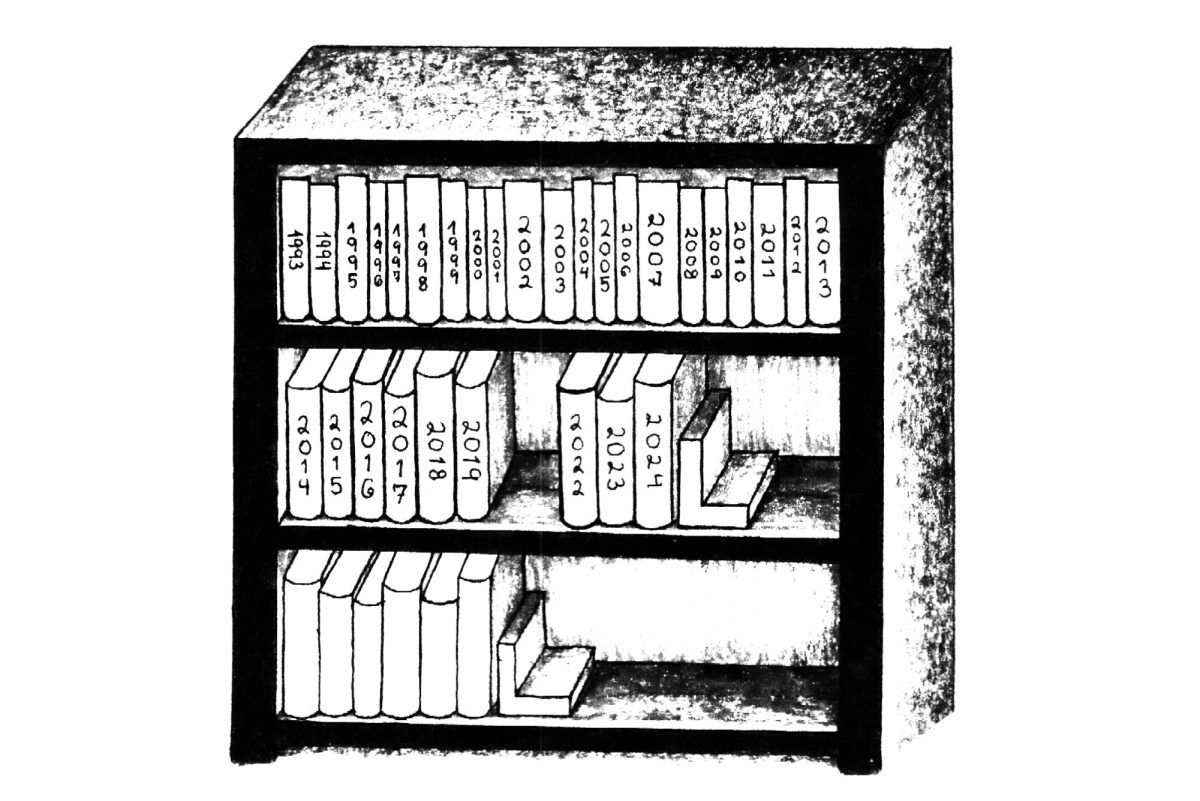Syllabus week is now in the rear-view mirror, and many students know whether they can use a laptop in class.
Some professors will mandate that students take notes by hand, citing studies that hand-writing notes is better for learning. Although this evidence is valid, mandating that all students comply with no-laptop policies patronizes them by removing their ability to make their own learning decisions. The rule also inadvertently works against students with disabilities by singling out those who may have accommodations to use laptops.
The case against laptops in class has some merit. The average student who takes notes on a laptop tends to perform worse on exams than ones who take notes by hand, and many studies support that conclusion. Education researchers speculate that students might not understand content when they are typing quickly, so it is harder for them to encode the necessary information. But the research should not override students’ ability to make their own decisions about their learning. Some students may learn better writing notes, but what works best for the average student does not necessarily work best for everyone. Students should be responsible for their own learning techniques and use whatever method works the best for them.
Tara Peckham | Cartoonist
Professors may also argue – and research agrees – that allowing laptops might allow students to scroll through social media or look through websites unrelated to class, which can distract peers. The concern is valid but one that is not impossible to ease. One researcher from Stanford University suggested that professors set aside certain rows in class that are laptop-free so students who want to write notes by hand are not distracted. Professors could also step in when students use their laptops for anything other than taking notes, be it by issuing a verbal warning or by deducting points from participation grades. There are several ways to ensure students are using their laptops appropriately – professors do not need to ban them altogether.
By that same token, anyone who receives a lower class grade because they chose to spend time browsing Facebook instead of taking notes should take full responsibility for that outcome. Students should be trusted to make their own decisions about how they use their laptops and whether it will help or hurt their learning.
Banning laptops is also problematic because it can single out students with disabilities. The University’s Disability Support Services office approves accommodations for almost 2,000 students each semester, many of whom have an accommodation to take notes on laptops. The issue is not that these accommodations might not be honored by professors who ban laptops – the issue is that in a no-laptop class, students who have technology accommodations are easily identifiable because they are the only ones writing notes on a keyboard.
Even for students who do not have disability accommodations, using laptops may just be a simple learning preference that professors should respect. Not every student learns the same way, and classroom policies should account for that fact. The argument does not mean research about using laptops in class is invalid, nor does it mean students should have a pass to behave irresponsibly. What it does mean is that students’ learning should not be micromanaged.
Students should have the final say in how they want to learn and make the most out of their classes. If students are expected to live by themselves, budget for themselves and navigate the world of jobs and internships by themselves, then surely something as simple as choosing how they take notes in class should be up to them.
Andrew Sugrue, a sophomore majoring in political science, is a columnist.


